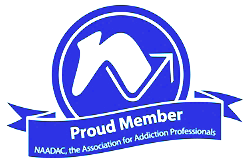IF YOU NEED IMMEDIATE HELP WITH A SUBSTANCE ABUSE EMERGENCY, CALL 911.
Again: this page is not a substitute for professional advice: if you even suspect you’re having an emergency, CALL 911.
At Twelve Step support meetings, the most effective moment may be the ending. As we circle up and get shoulder to shoulder, we begin by saying “Let’s share a moment of silence for all those still struggling.” An interconnection happens, not easily described in words. At FIREBIRD, we offer the knowledge we’ve gained to support the community, especially those who have made the critical decision to say yes to recovery and freedom from substance abuse. Knowing exactly how to do this is the hard part- so here’s a walk through this difficult terrain with a brief how-to below, with links to established inpatient and aftercare programs, for both men and women.
What's the person's medical condition? Several substances call for a medically supervised detox process for safety, prior to entering "rehab" or long-term care. Families and/or users themselves may not know what to expect with withdrawal. The best all around option is to proceed to a local Emergency Room or see a physician immediately.
If that person does not have health coverage or is underinsured, there are a variety of State and Federally funded programs for which the person may qualify. Ask the Social Worker assigned or on duty what programs are available in your state (for NC, the ADATC system is the preferred choice).
If the person is considered to be medically stable (has had multiple withdrawals and/or are currently withdrawing under a physician's care), the determination needs to be clinically made as to the appropriate level of care; more than likely, for addictions that are in any way life threatening, inpatient long-term care will be recommended.
It is possible that a recommendation may be made for local care in the community, using area resources, including a level of care called "Intensive Outpatient." Often referred to as IOP, this is frequently an additional aftercare recommendation. Counselors, Twelve Step (or other) programs, and medical management may be a choice as well.
What is your insurance status/what is affordable? Inpatient programs interfacing with insurance companies vary; it's important to check with your provider and see what program is in network, out of network, or in certain scenarios willing to make a "single case agreement." Your deductible and out of pocket expenses are definitely considerations too!
If you don't have insurance, many programs offer scholarships, reduced rates for single cash payments, or linkage to financial assistance resources. As with detox, many states to provide variations of 28-90 day programs; again, check with your social worker if this is the case. Some of these programs may have extensive waitlists and having a "Plan B" could be extremely useful.
There are many other factors to consider as well, and these are but a few: consumer facility rating, accreditation, philosophy of care/treatment approach, programs offered during treatment [e.g. equine therapy], family/loved one participation, level of supervision, discharge planning and follow-up services, medication approach, quality of amenities, amount of individual care, locked or unlocked, etc.
Discharge planning is best defined as strategizing the transition to a lower level of care for continued support after completion, or increasing level of care from outpatient.
Can/does/should the person return to their home/community? Oftentimes, this is strongly not recommended. Triggers that have only just been addressed could be easily stimulated (people, places and things). This question needs to be answered first and foremost.
If aftercare/discharge planning is recommending sober living, what does this mean? At minimum, sober living homes are supervised housing with a mutually agreed and enforced sobriety, with some form of structure for self improvement in place. Lengths of stay can be anywhere from 90 days to two years. How these programs are structured, offer, cost, and expect vary widely. Specialists in the inpatient treatment program will often have recommendations that suit the person's/the family's preferences and have established track records. It is best to do some research, and not let searching the web be your only resource. Ask a professional!
Most common factors to consider when choosing the right sober living program: cost, daily schedule, family/loved one integration, philosophy of care, housing style/conditions, rules/expectations, drug screening regularity (and especially how it's paid for: is it included (preferred) or billed to insurance (often complicated, could be troublesome), location, transportation (close to public transportation, cars allowed, etc), available for touring before deciding, reputation of staff, average length of stay, relapse rate since opening, average age of other participants, what's allowed in the "early days," ability for person to do home visits, and these are just a few examples. A good program will answer a bulk of these questions of their website.
Other options beside sober living that might be presented at discharge could be any combination of IOP, therapy, or medication management.
These are our recommended inpatient programs, these are not based on any solicitation, just experience! Listed in alphabetical order:
- Black Bear Lodge, Sautee, GA
- CooperRiis, Mill Spring, NC
- Cornerstone Treatment Center, Knoxville, TN
- Crestview Recovery Center, Asheville, NC
- Crossroads, Antigua and FL
- Cumberland Heights, Nashville TN
- English Mountain Recovery, Sevierville, TN
- Father Martin’s Ashley, Havre-de-Grace, MD
- Fellowship Hall Treatment Center, Greensboro, NC
- Lakeview Health, Jacksonville, FL
- La Paloma (“The Oaks”), Memphis, TN
- Mountainview Recovery, Weaverville, NC
- Oasis Recovery Center, Asheville NC
- Pavillon, Mill Spring, NC
- Red Oak Recovery, Leicester, NC
- Silvermist Recovery, Mills River NC & Renfrew, PA
- Two Dreams Outer Banks, Corolla, NC
- Wilderness Treatment Center, Marion, MT
- Wilmington Treatment Center, Wilmington NC





